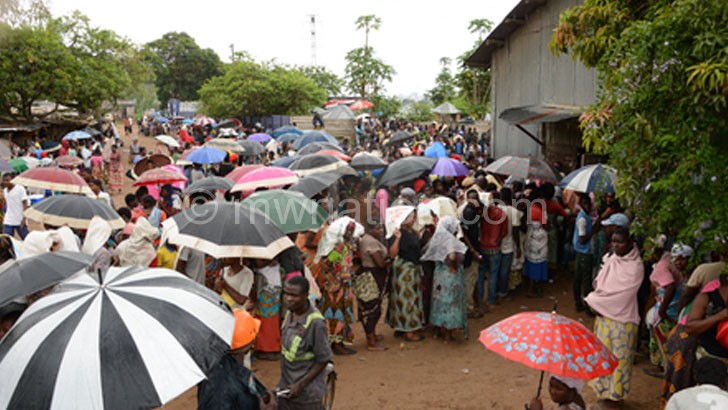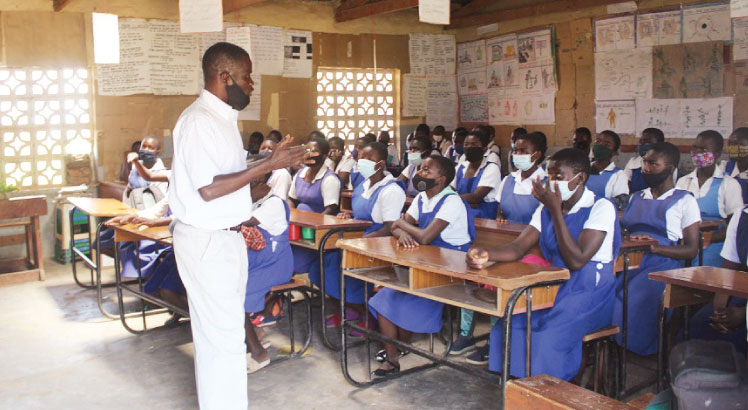Overcoming food crisis: UK weighs in
The United Kingdom is proud to be one of Malawi’s key development partners.
We are proud of the enduring friendship between our two countries.

for lengthy durations in admarcmarc depots early this year
I have a long personal history with Malawi, having spent some of my earlier career living and working here.
I am delighted to have had the opportunity to come back for another visit. However, I wish it had been under better circumstances.
We in the UK are increasingly worried about the impact of El Nino on southern Africa and particularly in Malawi, Mozambique and Zimbabwe.
We have committed K45 billion to the humanitarian response for Malawi since October last year.
We could provide more: up to an additional K10 billion of UK funds has been identified to assist the government and the World Food Programme (WFP) with maize distribution.
I was grateful for an opportunity to discuss these issues with President Mutharika, Vice President Chilima, Minister Gondwe and his team as well as senior officials from the Ministry of Agriculture, Agricultural Development and Marketing Corporation (Admarc), National Food Reserve Agency (NFRA), United Nations (UN) representatives, development partners and private maize traders.
The crisis requires a fast, flexible response led by the government and supported by the development partners.
I make four simple pleas on the urgency and leadership of the response.
Share information
First, better sharing of information on who is planning to do what and when.
The government has put in place excellent plans, but too few people know about them.
It is vital that there is absolute transparency on what purchases are being made and when food will arrive.
Government could help by publishing its plans for the release of the food: making clear at what price it will be sold and to whom.
Development partners must be equally open.
Without transparency, the response will be inefficient, the risk of corruption will grow and speculators and the privileged few may benefit at the expense of the majority.
Stronger coordination
Second, there is a need for stronger coordination to ensure issues and problems with implementation are addressed and resolved faster, bringing together those responsible for commercial imports with those focused on the humanitarian response.
This needs to be led at a very high level by government, but the international community must play its part.
Everyone involved in the response-including ministries, the NFRA, Admarc, development partners, UN agencies, civil society and the private sector- needs to be clear on what is expected of them.
Transparency and predictability
Third, it is vital that government’s purchases and sales of maize through Admarc are made more transparent, predictable and rules-based.
At present, the lack of transparency and rules surrounding Admarc interventions in maize markets means that the private sector has little incentive to sell maize to consumers, worsening the food shortage.
Act now, not later
Fourth, government can act now to avoid a further crisis next year.
Government could put in place an open consultation platform involving producers, traders, donors and Admarc in order to consult on the way forward for maize market reform and transparency.
I was pleased to hear that Admarc is working with International Food Policy research Institute to consider ways that it can reform its interventions in the market.
The key point is to create positive-not negative-incentives for producers and the private sector to minimise the risk of inadequate production in future years.
Strengthening the country’s commodity exchanges could help with this.
The international community also needs to step up, rapidly delivering pledges of increased support to help the country tackle the crisis.
Malawi’s neighbours need to help too, fulfilling commitments made in SADC to ease trade flows and improve transport and logistics.
Looking forward
In conclusion, it is clear to me that Malawi’s food insecurity situation is not caused by weather patterns alone.
More food could be produced in the country if the policy environment lent itself to investing in commercial production.
Export bans and the government’s intervention in markets lead to price volatility that makes investment a significant risk.
Challenges in the broader environment, including lack of investment in irrigation, research and extension also limit productivity in agriculture.
Without significant diversification, the population will remain highly susceptible to variations in weather patterns and world prices.
Policy reform, followed by investment, can fuel a more diverse economy.
There are emerging signs of these reforms. With further political will, President Mutharika’s government can deliver the watershed change in Malawi’s food security and economic fortunes that the country needs and its people deserve.





